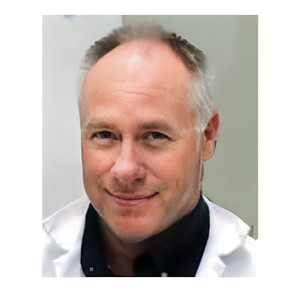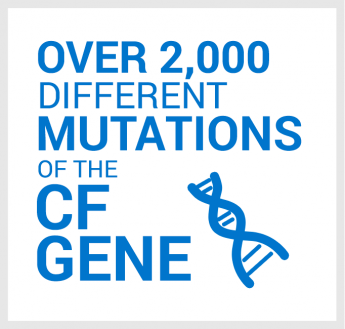Dr. Jonathan Dennis is a researcher and professor at the University of Alberta in the Department of Biological Sciences. Dr. Dennis was recently funded by Cystic Fibrosis Canada for his research, Phage Therapy for Burkholderia CF lung infections. We sat down with Dr. Dennis to learn more about Phage therapy and Burkholderia cepacia, and why his research is so critical to the CF community.
What is Burkholderia cepacia and why is it a concern for the CF community?
Bacteria of the Burkholderia cepacia complex (Bcc) are bacteria commonly found in various environments, including the surroundings of individuals with cystic fibrosis (CF), who can then acquire this bacterium from the environment.
Like other bacterial CF lung pathogens, the Bcc are problematic because they are highly antibiotic resistant, and can adapt to grow within the lungs of CF patients. Even when exposed to antibiotics, the Bcc doesn’t get completely eliminated but rather is just suppressed in numbers. Temporarily, this suppression improves the patient’s clinical condition and breathing. However, the bacteria can persist in the lungs during exposure to antibiotics without ever being fully eradicated.
This persistent presence leads us to categorize the Bcc as a chronic lung infection in CF patients. Unlike other CF lung pathogens, like Pseudomonas aeruginosa, the major issue with the Bcc is its ability to switch from a chronic state to an acute infection. During an acute infection, Bcc bacteria can enter the bloodstream, causing an acute condition called bacterial sepsis. This triggers direct interaction with the immune system and can rapidly lead to more severe illness, sometimes referred to as “cepacia syndrome”..
Interestingly, some CF patients can live their entire lives with Bcc in a chronic state without transitioning to an acute infection, which is promising. However, the factors triggering this transition remain unclear. For patients with Bcc infections, the primary concern is the possibility of a serious shift from chronic to acute infection, which can be fatal.
What is phage therapy and can you tell us about how this therapy has helped some individuals with severe infections?
This strategy relies on the idea that the enemy of our enemy is our friend. In this case, Bcc bacteria are our enemy, and bacterial viruses (also called bacteriophage, or just phage for short), the enemy of the bacteria, become our allies. So, we employ these phage viruses to attack and kill the bacteria, replacing traditional drugs or chemical compounds. The outcome is an alternative form of therapy, often referred to as directed or personalized medicine. Phage therapy offers several unique advantages. Phage viruses only infect bacteria, and they are not harmful to the patient. And unlike drugs that remain constant and unchanged, viruses are highly adaptable and can evolve to become even better at killing the bacteria they infect. This flexibility presents potential benefits and innovative possibilities for treatments.
Can you tell us how your research might improve one of our CF communities’ health priorities, airway infection detection and treatment?
Our primary goal is to stop bacterial infections. We are using Burkholderia as a model for phage therapy, which is an unexplored approach. If successful with Burkholderia, we envision extending phage therapy to target Pseudomonas in adults and potentially in children. This alternative way of eradicating bacteria could reduce the immune system’s strain in CF patients, preventing rapid lung tissue scarring. This improvement would likely enhance lung function and overall quality of life over decades. The concept revolves around eliminating critical bacteria, potentially leading to significant lung function improvement. Despite having a higher bacterial population than healthy individuals, selectively removing key pathogens could offer these patients a significantly improved lifestyle.
What do you see changing over the next 5 to 10 years for those living with CF?
We have witnessed the transformative effect of specific drugs on lung function by opening up airways, like CFTR modifiers. While these drugs have greatly improved the lives of some, their high-cost limits widespread access. The long-term effectiveness is still being observed, with ongoing data analysis and uncertainties about extended usage. Additionally, not all mutations can benefit from such drugs, and alternative solutions are being looked at. Despite past failures, the recent success of targeted therapies of a population of patients is encouraging. Phage therapy holds promise in combating major pathogens and improving lung function. This approach is gaining momentum globally, and although challenges persist, the focus remains on enhancing patients’ lives and ultimately eradicating this disease.
What would you like the community to take away from your research?
The central message is one of hope. I stand at the forefront of phage therapy, where we have witnessed success in specific instances. While the reasons for occasional failure remain unclear, our expanding knowledge at the molecular and drug interaction levels, as well as the dynamics of clearance and reinfection, fuels our confidence. We have hope and we have no reason to believe that it won't work. The path forward involves gathering more data and learning how to work with it effectively. We will address not just phage-to-phage interactions, but also the interplay between phages, patients, and drug combinations. We believe that this approach can really improve the lives of CF patients.




.jpg)
